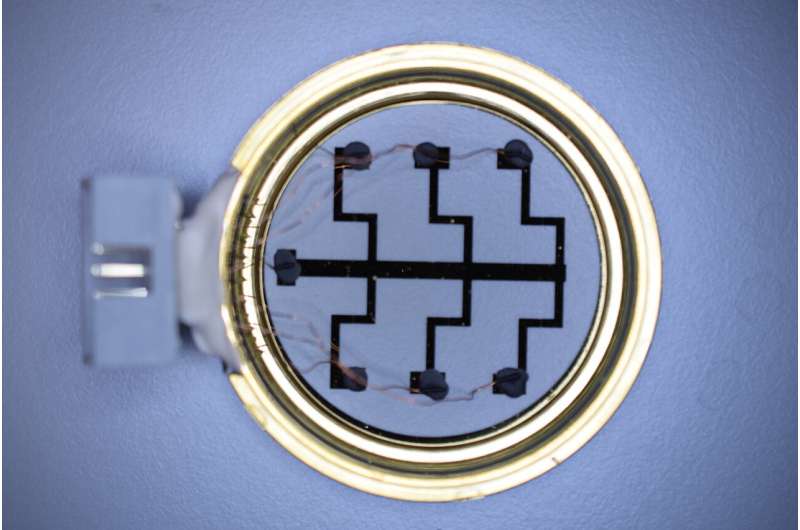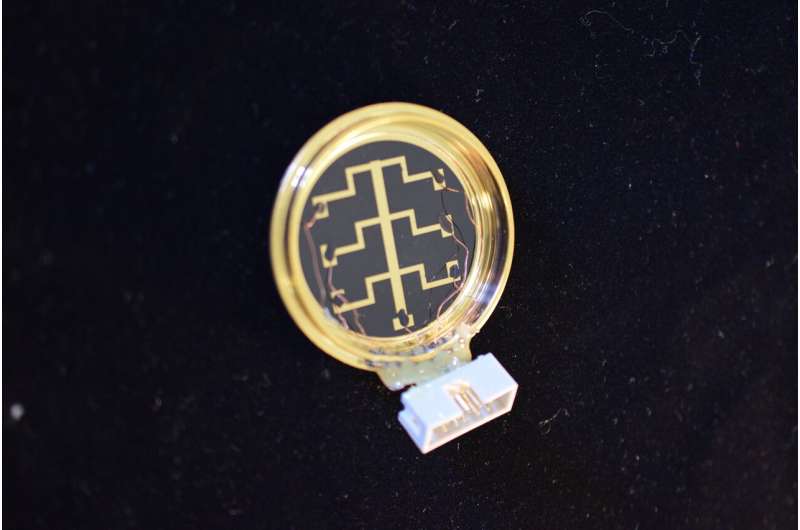Detecting bacteria such as E. coli in minutes

A discovery by researchers at the School of Life Sciences at the University of Warwick offers a new technology for detecting bacteria in minutes by 'zapping' the bacteria with electricity.
Testing clinical samples or commercial products for bacterial contamination typically takes days. During this time, they can cause significant damage; many infections can become life threatening very quickly if not identified and treated with appropriate antibiotics.
For example, 8% of people with severe blood infection sepsis will die for every hour of delay in proper treatment. More routine problems like urinary tract infections are difficult to diagnose and some people cannot get a clear answer about their symptoms due to difficulties with detecting low-level infections. Studies have found 20-30% of urinary tract infections are missed by dipstick tests used for detecting bacteria in the urine.
Scientists at the University of Warwick have discovered that healthy bacteria cells and cells inhibited by antibiotics or UV light showed completely different electric reactions.
They made this discovery by combining biological experiments, engineering and mathematical modeling. Published in Proceedings of the National Academy of Sciences (PNAS), these findings could lead to the development of medical devices which can rapidly detect live bacterial cells, evaluate the effects of antibiotics on growing bacteria colonies, or which could identify different types of bacteria and reveal antibiotic-resistant bacteria.
The researchers have an ambitious plan to deliver the technology to market to maximise social good and have founded a start-up company Cytecom to commercialise the idea. The company has been awarded a grant from Innovate UK, the national innovation funding agency. This governmental support accelerates the process and the devices will be available to researchers and businesses in the very near future.

Dr. Munehiro Asally, Assistant Professor at the University of Warwick comments:
"It is such an exciting time to work on bio-electricity of bacterial cells. This work demonstrates that bacterial electricity can lead to societally important technology, while at the same time gaining fundamental insights into our basic understanding of cells. The tool we developed can offer more opportunities by allowing experiments which were not possible to perform before."
Dr. James Stratford, from the School of Life Sciences and Warwick spinout company Cytecom comments:
"The system we have created can produce results which are similar to the plate counts used in medical and industrial testing but about 20x faster. This could save many people's lives and also benefit the economy by detecting contamination in manufacturing processes."
Dr. Yoshikatsu Hayashi, from the University of Reading, comments:
"Using the widely used mathematical model in Neuroscience, we revealed a common mechanism of excitable cells, neuron and bacteria cells, and the extended neuronal model could explain two distinct electric reactions of healthy and unhealthy bacteria cells. Surprisingly, a single parameter representing the degree of non-equilibrium across the membrane was sufficient to explain the distinct responses of the cells. This is an important step towards understanding the origin of electrical signalling."
More information: James P. Stratford et al. Electrically induced bacterial membrane-potential dynamics correspond to cellular proliferation capacity, Proceedings of the National Academy of Sciences (2019). DOI: 10.1073/pnas.1901788116
Calum McGregor. Improving time to antibiotics and implementing the "Sepsis 6", BMJ Quality Improvement Reports (2014). DOI: 10.1136/bmjquality.u202548.w1443
AnithKumar Mambatta et al. Reliability of dipstick assay in predicting urinary tract infection, Journal of Family Medicine and Primary Care (2015). DOI: 10.4103/2249-4863.154672
Journal information: Proceedings of the National Academy of Sciences , Neuroscience
Provided by University of Warwick



















